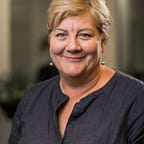Campaigns and costings will not increase young people’s participation at the ballot box
An estimated 1.2 million South Australian’s will cast their vote in a State Election this weekend (19 March 2022) but approximately 50% of eligible 18-year-olds across the State will not be amongst them.
It’s an issue unlikely to get any attention amidst the preoccupation with corflutes and campaigns, but the concerning low rates of 18-year-olds who will cast their vote means there will be a significant lack of representation at the ballot box from this age-group.
So why is the lack of engagement by 18-year-olds, in one of the most important parts of democracy given so little attention? We can’t simply point to ambivalence or apathy on their part. There are other barriers that stop young people from voting that need to be addressed.
We know young people care deeply about issues such as the environment and working towards a fairer more equitable society. We know too that young people want more practical opportunities to make a difference, and to engage in their communities in contemporary ways.
However, they also report they have difficulty getting motivated about politics and voting because they don’t see policies relevant to their lives. They see policies that favour older Australians with young people more likely to be unemployed or under-employed, have low pay, be unable to buy or rent suitable accommodation and having to spend large proportions of their income on essentials and their education. It perhaps shouldn’t surprise us that young people are becoming increasingly disillusioned with mainstream politics. But it should concern us.
At the 2018 State election, 18 to 24-year-olds had the lowest enrolment figures and lowest participation rate of all age groups. They also reported the lowest levels of confidence about completing their ballots, citing a lack of preparation for the process of voting in their schooling as a major issue. This combination of a lack of trust and a lack of knowhow is a concern. Surely as adults we must take responsibility for preparing young people for their adult responsibilities, ensuring they have the civics and citizenship competency they need to participate fully in our democracy when the opportunity for them to do so first arrives.
South Australia’s school-based civics competency scores are below Australian national and international standards meaning young people don’t have the confidence, knowledge, understanding or skills they need to develop their civic identity. The potential consequences of these low levels of civics proficiency are disengagement from democracy’s ideals and values, and ultimately from its processes.
Although there is a mechanism for young people aged 16 or 17 years to pre-enrol so that they can become registered to vote well ahead of time, the majority don’t know about this, and those who do are not taking advantage of it. Many young people are actually unaware that when they turn 18 they need to put themselves on the electoral roll and vote in each state and federal election that follows.
As it stands, for some 18-year-olds the first time they might hear about their requirement to vote could be a letter from the Australian Electoral Commission (AEC) asking why they haven’t. If a legitimate reason cannot be given, or the first correspondence is not received, they may face a fine of up to $75. Real world consequences such as restricting vehicle registration and suspension of driver’s licences then become possibilities.
Previous low participation rates saw a record number of fines issued to young South Australians by the AEC following the 2018 election. Sadly, it looks as though the same scenario will prevail this March. What a way to be introduced to exercising your right to vote as an Australian citizen!
Surely this is the kind of experience we want to avoid at all costs if we are to have a democracy in which young people are encouraged to engage, particularly one that has a reputation for being one of the finest in the world.
In other countries falling participation rates from this age-group have been addressed. New Zealand has allowed enrolment on polling day, removing a barrier that resulted in an immediate 20% increase in young voter participation. Advertising in places where young people are likely to connect such as Instagram and TikTok, should also be part of the mix.
But as with all things that matter, it comes down to the investment we make in civics and citizenship education and the subsequent take up of democratic opportunities and experiences by young people to have a voice and be heard that will bring about real change.
Images: Form part of the CCYP State Election awareness raising campaign run on Instagram and Tik Tok to encourage as many young people 18 years and over to enrol and vote in South Australia’s State Election 2022 and have their voices heard.
